TSB: What does it mean for a town when a bank closes?
- Published
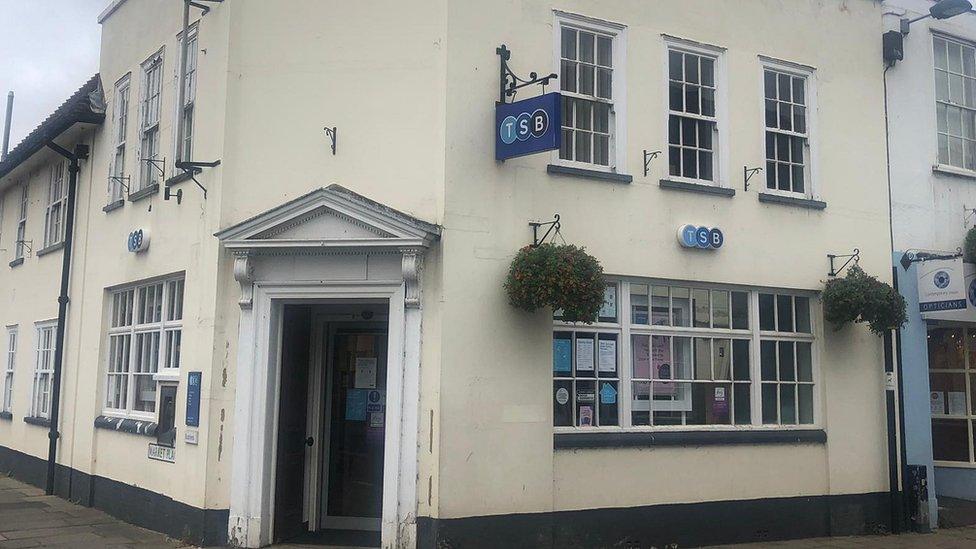
A bank has been at the High Street site of the TSB branch in Hadleigh for decades
The TSB branch in Hadleigh, Suffolk is one of 164 set to go as the bank cuts 900 jobs. What does it mean for a town when a bank closes?
Dr Sian Dawson can see the Hadleigh TSB from where she lives.
The bank, she says, is essential for her podiatry clinic business.
"This is going to be a nightmare," says Dr Dawson. "I can't believe it."
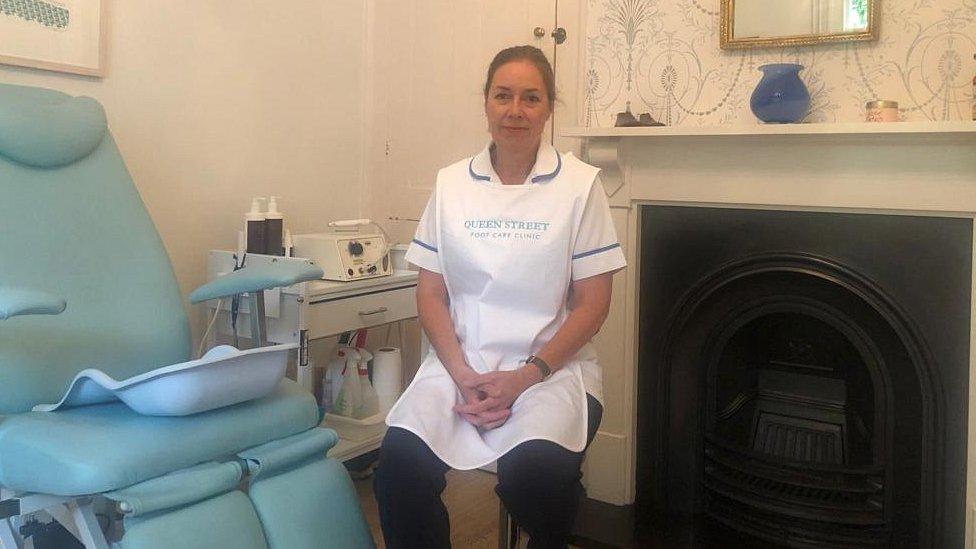
Dr Sian Dawson who runs Queen Street Foot Care, in Hadleigh. and is also a town councillor
Although Hadleigh has an Ipswich Building Society, the nearest bank following the closure will be a 20-minute drive away in Ipswich or Sudbury.
"I will close my TSB account if they leave Hadleigh," she says. "It won't be convenient to stay with them for the business."
Dr Dawson, 41, who is also a local Conservative district councillor, praised the staff at the bank.
She says: "It's such a brilliant branch.
"It's crazy really to think this is happening. So many of my clients pay by cheque, so I rely on the bank service."
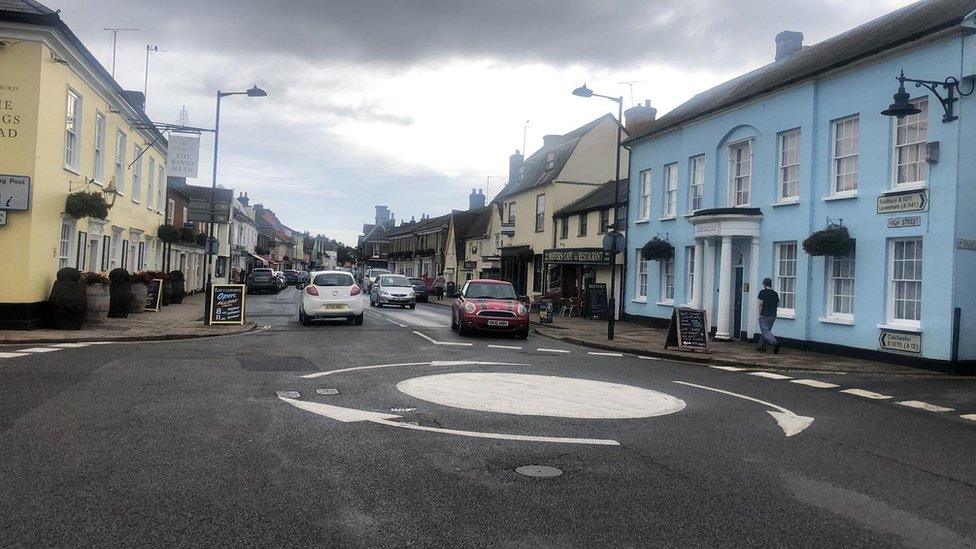
Hadleigh, with a population of about 8,000, is known as one of Suffolk's "wool towns", external - a reference to the cloth industry that led to much of its wealth.
Its High Street mainly consists of independent shops and has many distinctive timber-framed buildings.
This is not the first time Hadleigh has lost a bank in recent times - Barclays closed three years ago and the building has yet to be sold.
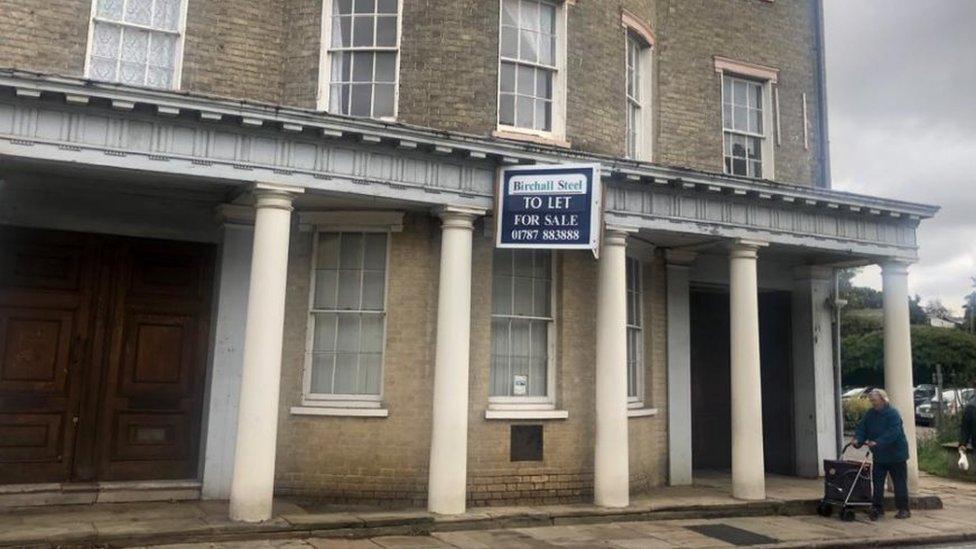
A "to let" sign is up on the former Barclays Bank building in Hadleigh
Muriel Wasp and her husband Paul Wasp say most people transferred their banking to TSB at that time.
"I'm very sad for the older generation. A lot of them go in there to have a little chat. It's another part of Hadleigh life gone," says Mrs Wasp.
Her husband Paul adds: "Many within Hadleigh, I think, still haven't got the internet, don't own a computer. So what are they going to do?"
Their friend Neil Henderson, who works for Hadleigh Town Football Club, says the club still handled a lot of cash transactions and was unsure how it would be affected.
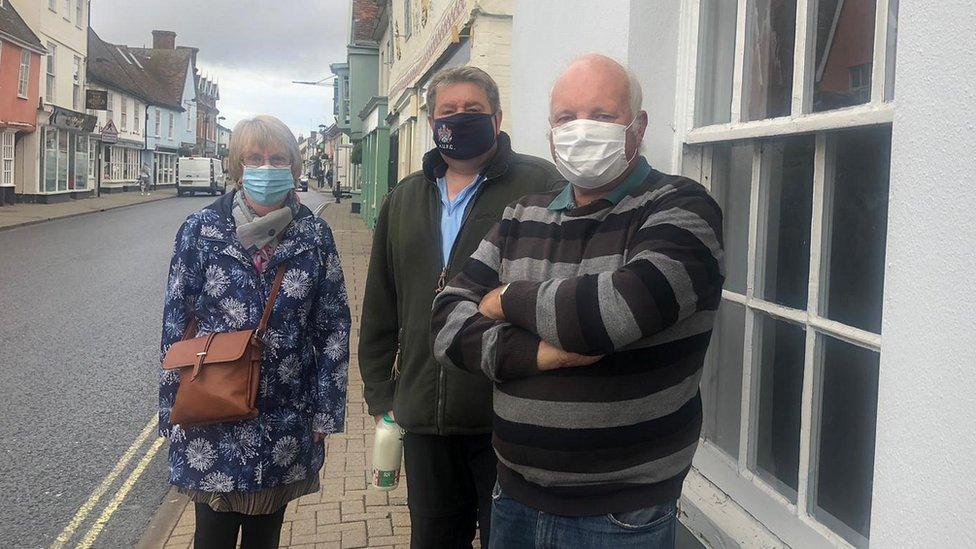
Muriel Wasp, her husband Paul Wasp with friend Neil Henderson (centre) believe the town will struggle without TSB
Sylvia Nudds, 77, who lives in nearby Dedham, in Essex, arrived at Hadleigh's TSB on Thursday morning to use its cash machine. She was shocked to hear it was closing.
"We have to go to two other villages to get any money at all. It's going to annoy me," she says.
"I swapped from Barclays [to TSB] because they were closing.
"Unfortunately, the less shops there are, the more a town declines. We just come in for the bank really, which is quite a way."
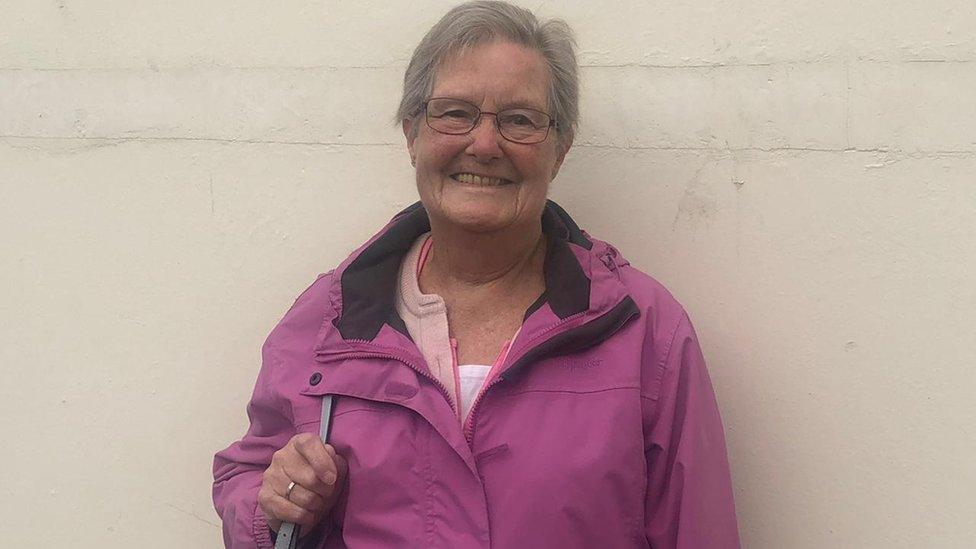
Sylvia Nudds uses the TSB on a weekly basis when she visits the town to buy fish
Julie Towells, who owns Ferguson's Delicatessen, says she used TSB to get change for her tills.
"Now I can't get change from anywhere," she says.
"For health reasons, we use card but for economical reasons we use cash. As a small business, we're penalised using a card as we have to pay a transaction fee.
"I suppose using card is what most people do, but the elderly are going to struggle. They still like to use cash. We've had to guide so many through and show them how to scan."
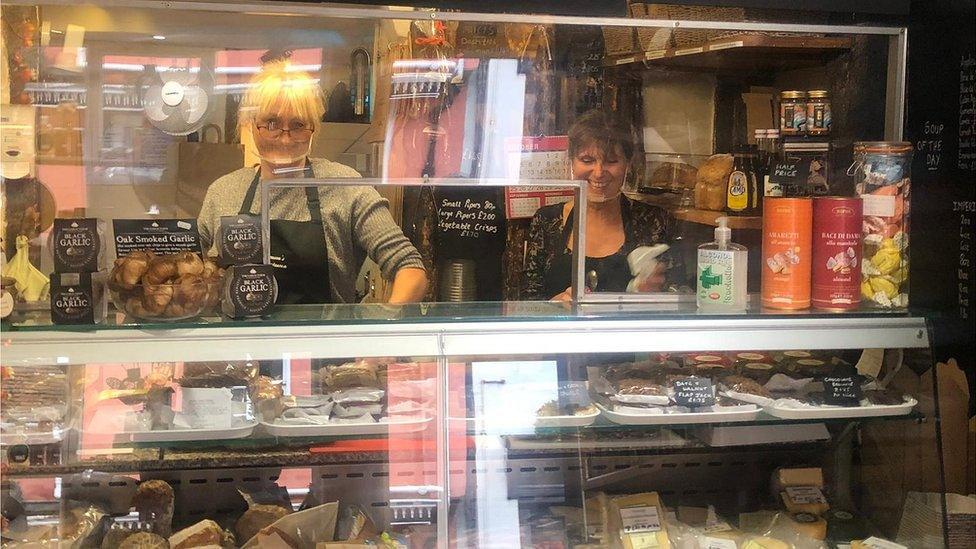
Julie Towells (right) is concerned for her elderly customers who prefer to use cash to buy goods
The building society in Hadleigh does not offer standard current account or card-based transactions.
Postmaster Jeremy Brown describes the closure as "very sad" and said the town's Post Office only offered "basic banking facilities".
"I don't want it to go, or for any company to go. But most shops in Hadleigh are independents so it won't be the death knell of the High Street," says Mr Brown.
Melissa Baxter, manager of the Eight Bells pub, said using the Post Office would mean transactions take longer to reach accounts.
"Nothing will be as quick as just depositing in the bank down the road," she said.
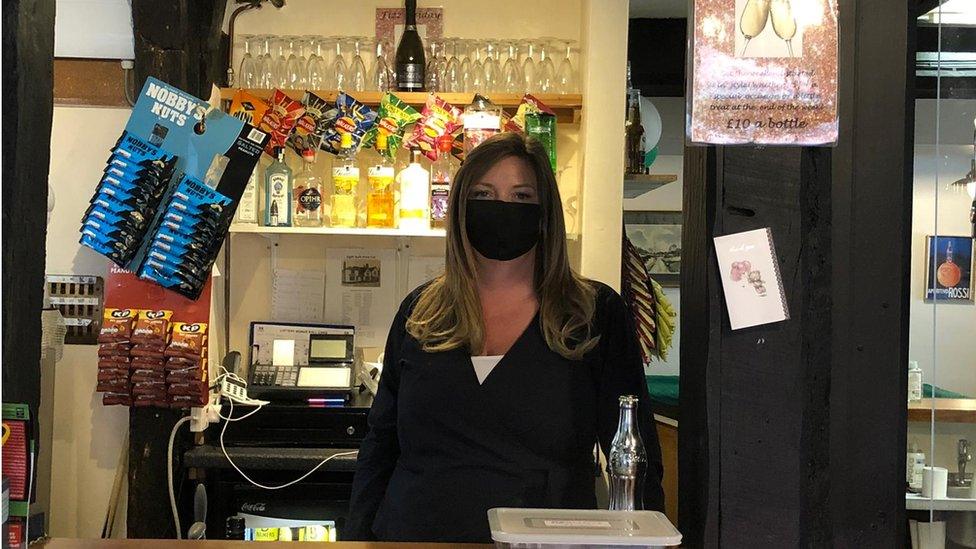
Melissa Baxter, manager of the Eight Bells pub, says sourcing change for cash-paying customers will be harder
Robin Bulloch, customer banking director at TSB, says: "We are working to ensure the transition towards digital, which is being seen right across the economy, is handled sensitively and pragmatically for our colleagues and customers.
"We're taking steps to support vulnerable customers and those in rural locations."
The company said 94% of TSB customers would not have to travel more than 20 minutes to a different TSB.
A full list of TSB banks affected can be found here, external.

Find BBC News: East of England on Facebook, external, Instagram, external and Twitter, external. If you have a story suggestion email eastofenglandnews@bbc.co.uk, external
- Published30 September 2020
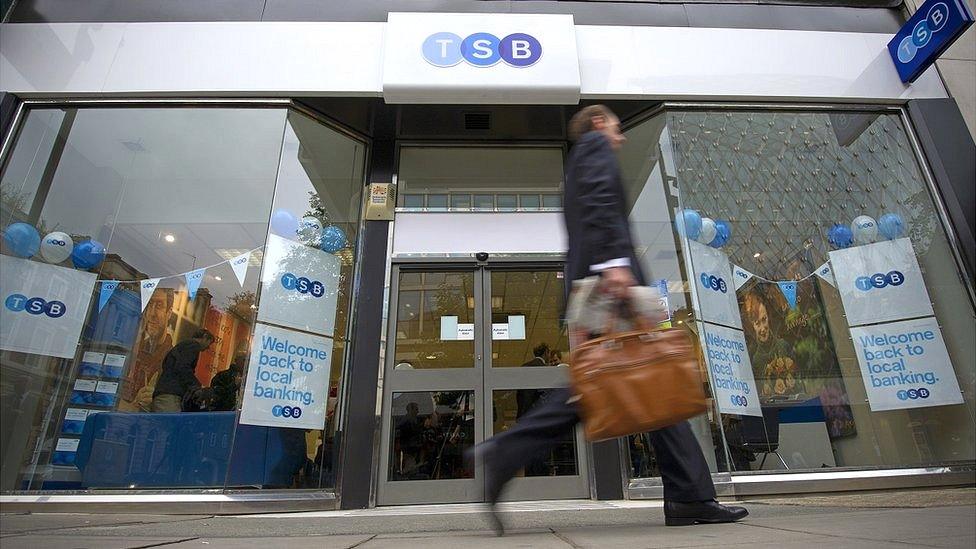
- Published29 August 2019
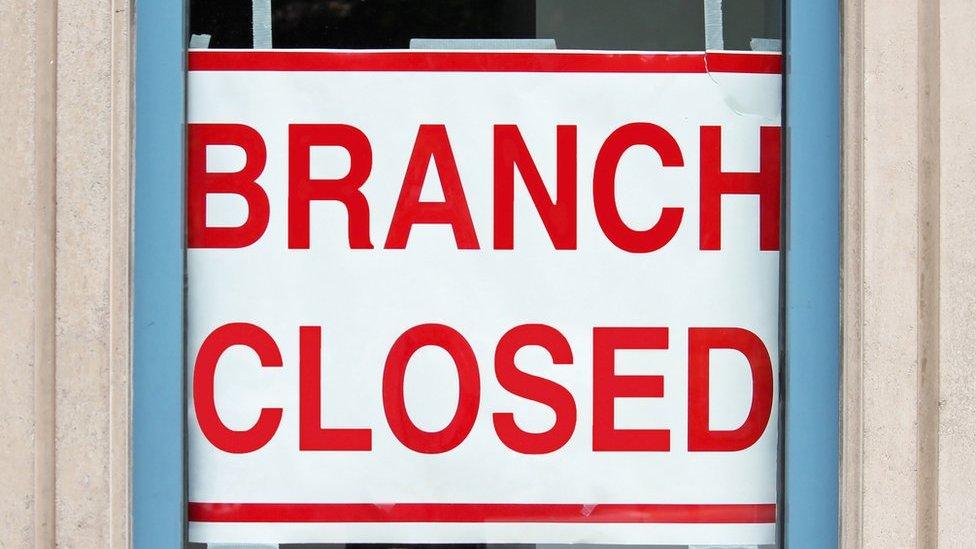
- Published2 January 2018
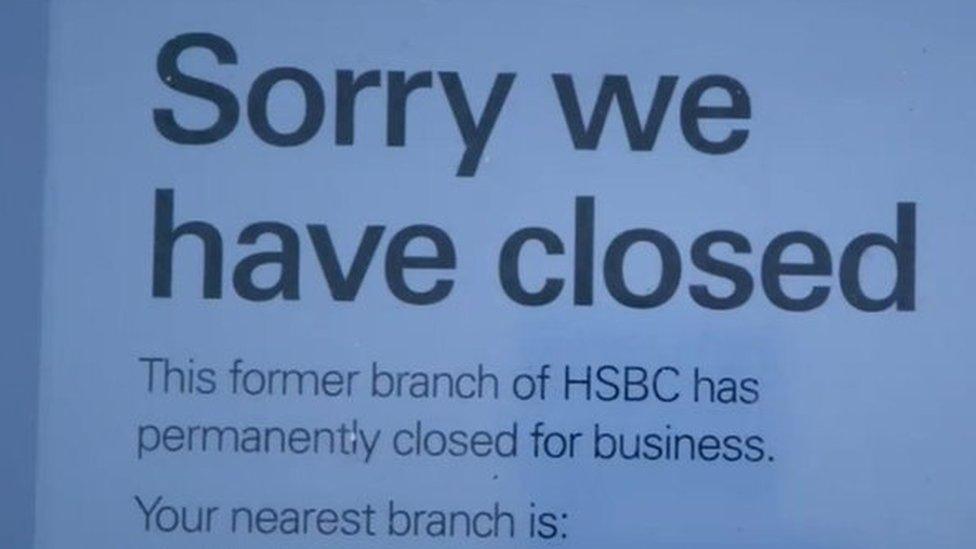
- Published2 July 2020
